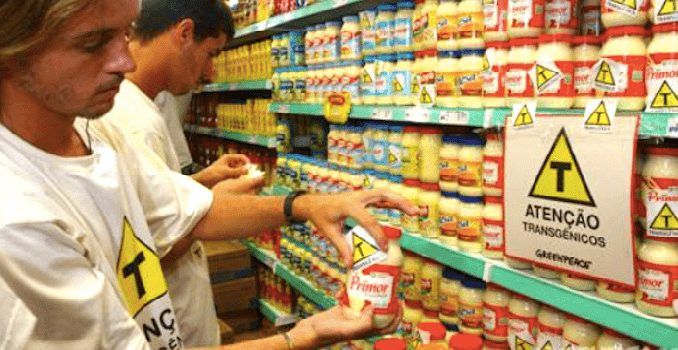
Brazil have placed a ban on U.S. imports of genetically modified crops from entering the country.
The news comes as an increasing number of countries have begun imposing trade regulations on GM goods around the world.
Naturalblaze.com reports:

BYPASS THE CENSORS
Sign up to get unfiltered news delivered straight to your inbox.
You can unsubscribe any time. By subscribing you agree to our Terms of Use
As more nations pass laws that impose trade regulations on genetically modified goods, despite World Trade Organization back room deals, Monsanto and their cut-outs opt for ever-more devious strategies to insinuate their wares onto the world.
Despite this, as a Bloomberg article points out:
In recent years, some of the largest commodity trading companies have refused to take certain GMO crops from farmers because the seeds used hadn’t received a full array of global approvals, something that can lead to holdups at ports or even the rejection of entire cargoes.
For example, Brazil.
In this instance, it is Brazil’s chicken farmers who won’t feed their birds GM corn; but there are other countries opting out of GM crops, too.
Ironically, Brazil is the the second largest producer of GM crops in the world after the U.S., and grows 29 varieties of GM corn, so they are likely pulling rank for trade rather than hoping to save their population’s health — but at least the chicken farmers see the detriment from using GM corn.
This doesn’t mean that a resistance in Brazil isn’t growing as well. Female Members of the Landless Worker’s Movement (MST) broke into a São Paulo State lab and destroyed millions of samples of GM prototypes not long ago that contained a carcinogenic pesticide.
There is a good reason for banning GM crops, even if they are only meant for livestock to consume. A new Seralini study says that the very first GM crop, introduced way back in 1996, was highly toxic to farm animals over the long-term.
Seralini highlights problems such as “partial paralysis (paresis) accompanied by great fatigue, and problems in the kidneys and mucosal membranes in the animals, followed by death in 10% of cases,” all from feeding the animals GM crops like corn, soy, and alfalfa. Not surprisingly, he finds that GM maize (like Monsanto’s highly touted Bt variety) are the most toxic of all.
You can imagine what we’ve done to these animals’ health since the 1990s — and to ourselves in the years that have followed.
Fortunately, Brazil’s farmers join a growing, international resistance against cultivating GM seed. Russia recently banned all U.S. corn and soy imports due to possible GM contamination. Nineteen additional countries in the E.U. also banned all GM crops, and dozens more have banned GM crops for import or growth in their country.


